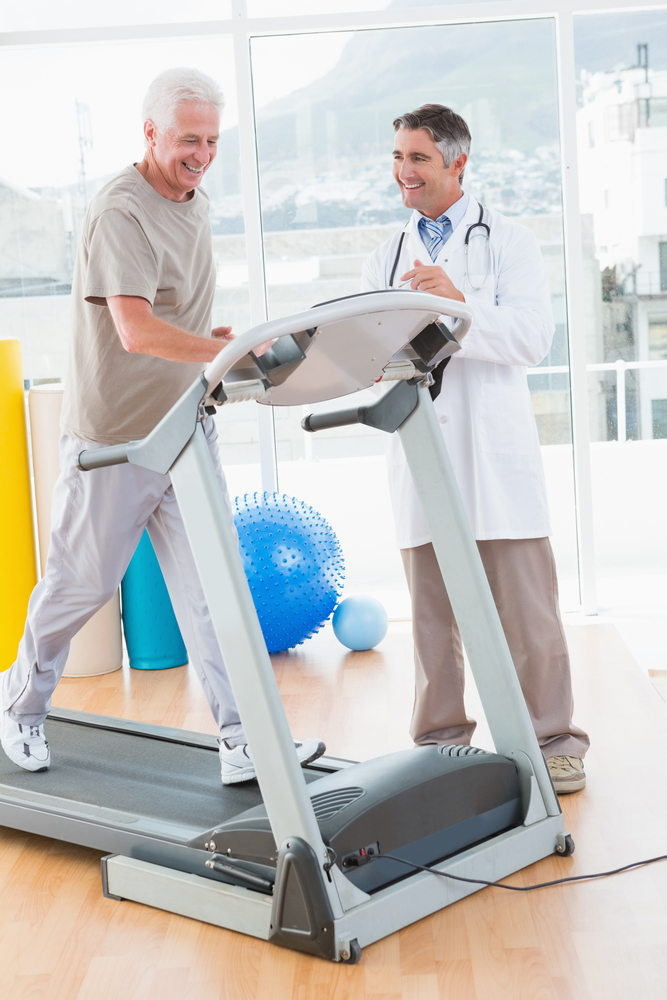#CMSC16 – Treadmill Walking Improves Cognitive Processing in MS Patients

Treadmill walking exercise training is beneficial for multiple sclerosis (MS) patients, increasing not only their cardiorespiratory fitness, but also their cognitive processing speed, according to the study “Systematically Developed Pilot Randomized Controlled Trial of Exercise and Cognition in Persons with Multiple Sclerosis,” recently presented at the Consortium of Multiple Sclerosis Centers (CMSC) 2016 Annual Meeting, taking place at National Harbor, Maryland through June 4.
Patients with MS commonly have a slowed cognitive processing speed (CPS), which is the rate at which a human can take in new information — including visual information or auditory, such as spoken language — and make sense of it, and then formulate a response. This is often debilitating and difficult to manage in these patients.
Previous research had identified progressive treadmill walking as an optimal exercise stimulus for managing slowed CPS in fully ambulatory MS patients. Now, researchers at the University of Illinois at Urbana-Champaign in Illinois, conducted a small pilot randomized clinical trial to examine the effect of a systematically developed progressive treadmill walking exercise training intervention in MS patients with CPS.
Ten fully ambulatory female patients with relapsing-remitting MS (RRMS) enrolled in the study, and were randomized into treadmill exercise intervention or waitlist control conditions. The exercise group underwent three months of supervised, progressive chronic treadmill walking exercise training, which was designed based on the American College of Sports Medicine guidelines and on pilot studies. All participants had their cardiorespiratory fitness and CPS measured by blinded assessors, before and after the three-month period.
The research team, led by Robert W. Motl, found that the control group had no changes in their cardiorespiratory fitness, the exercise group had a 14 percent improvement in this measure. CPS was measured through the Symbol Digit Modalities Test (SCMT), which revealed a three-point improvement in the group of patients who underwent exercise, and a reduction of three points in the control group. Interestingly, the cardiovascular fitness changes were found to be moderately to strongly associated with CPS changes, suggesting that in MS patients, improved cardiovascular fitness is a mechanism for improving CPS.
In conclusion, this randomized, single-blinded trial suggests that progressive treadmill walking exercise training may be used for the improvement of cardiovascular fitness of fully ambulatory MS patients, thereby improving their CPS over time.






